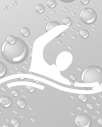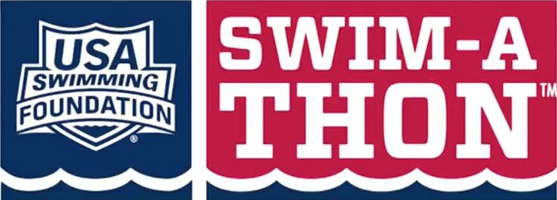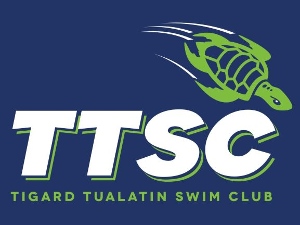Our Philosophy and our Coaches
Our Coaching Philosophy
With much respect and credit due my mentors:
Jack Ridley, Gary Leach, Ron and Don Heidary, and Mark Maxwell
We strive to provide an environment that merges a culture of character and humility on the part of the individual with success at the individual and team level both locally and nationally; this success will be recognized in the pool, in the classroom, and in the community.
The overriding philosophy is that participation in youth sports can and should be a life enhancing experience and not merely an extracurricular activity. Our program emphasizes structure, teamwork, integrity, and discipline. The better the person, the better the athlete, the better the swimmer, and ultimately, the best of citizens. It is the program’s and the coaches' objective that the benefits of swimming go far beyond the pool.
I am convinced that what can and should be gained from sports is truly invaluable and can be life-changing. For the countless hours committed, the physical, emotional, and financial commitment, and the sacrifices made, there has to be a more than a time at the end of the process. Too often in swimming, we see careers stray for the wrong reasons: overzealous parents, coaches with a single-minded focus on winning, kids obsessed with times or ego, and poor role models. Athletes become concerned more about who went first in their lane or who didn’t finish the set rather than whom they helped during the set and they seem to care more about their time and place rather than their effort and attitude (life skills). Energy and effort can flow into areas that actually break down a career rather than support its health and longevity. An environment driven by ethics and honor can significantly mitigate this. This is an opportunity for athletes to learn valuable like skills regarding effort, attitude, and character.
Coaches’ objective
Our mission is to be more than a coach, but rather a partner with our athletes on their athletic journey, and to a greater extent, partners on their life journey. Coaching is more of a life process and a people process than an athletic process; not only are kids wrapping their lives around a team, training, a process, and a coach, but in many ways, their emotional development, college decision, and the person they become will be shaped by this process as well. Our ultimate goal is that four, eight, or twelve years from now they are swimming at their very best, loving the sport, are leaders on their teams, and are better people and citizens.
Training
Our philosophy regarding training is that training should support the career and not the season; athletes should embrace training and not become slaves to it, therefore becoming resentful of it. The best career is a long, healthy, and positive one with continued development in terms of performance, efficiency, and training ability. Our training philosophy can be described as efficient training: every stroke matters, with an emphasis on technique, race strategy, and the fifth stroke (walls and underwater work). One of our main goals is to eliminate injury and “burn-out,” and keep every swimmer excited and looking forward to swimming at the collegiate level.
Academics
A diligent student represents a great deal more than his or her academic standing. I have seen academics and athletics work hand in hand and support and complement each other. The more an individual commits to either, the more the other is strengthened; athletes who do not embrace academics are generally not leaders (in the student-athlete sense) and can become one-dimensional. This lack of academic focus can open the door to less productive alternatives. One of our core objectives is to foster and support the athlete and student at the highest level in classroom and in competition. Our teams must commit to both.
Team and personal concepts:
People over Times
If people feel and know that you care them as individuals first, they will do virtually anything for you and the team. Unconditional mutual respect must drive the coach/athlete/parent relationship.
TEAM over Individual
Athletes must learn early that the TEAM always comes first. Swimmers must place the TEAM above themselves at all times. From a coaches’/athletes’/parents’ perspective, decisions and policies should reflect only one thing: the greater good and the TEAM as a whole. Sacrifices become easy and automatic when individuals care about the TEAM (and their teammates) unconditionally. TEAMWORK TAKES WORK. TEAM is created by you, not for you. As a result, coaches and swimmers should take ownership of the program and the environment. They should feel and act as if they are partners in the growth and continuing success of the program. A client has no responsibility beyond a desire for self-improvement, while a partner shares accountability.
The TEAM Concept
The TEAM concept is a life concept and there is no better place to learn it than in an athletic setting. “TEAM” is family, friends, students, co-workers, community, and on and on and on. It is coexisting and coproducing. The ability to be a good TEAM person or a LEADER can be developed in the pool and in the locker room every day. It requires empathy, sacrifice, and an unconditional commitment to a greater cause. This ability and understanding will serve athletes long after their careers have ended.
Humility over Ego
An environment based on ego is toxic. We let athletes know if they have an ego, they have a problem (need attention); and without being a psychologist (although I play one on the deck), we let them know that their need for attention will not satisfied, nor will it be tolerated. There are two types of people: one walks into a room and says, “Well, here I am,” and another who walks into a room and says, “Ah, there you are.” There should be room for only one of these two types of people on a TEAM.
Build Leadership from Day One
Ethical coaching should support the leadership process. Every team and athlete must know that the younger members are future leaders and role models; therefore, we begin from day one in building leaders. Swimmers are made aware of the standards and responsibilities, and what is expected of them now and in the future. Hazing that makes people feel less or inferior, is not tolerated in any form and has no place in our program. It is a cycle of negative feedback that can be replaced with guidance, motivation, mentorship, leadership, and support. If we want extraordinary and inspirational leaders in the future, they must see that play out in front of them and aspire to that. One of our main goals is to develop the young athletes into the “uncommon professional” and help them understand that their moral foundation drives the culture, the day to day operations, and the success of the program.
TEAM Attire
Team attire is and should be a statement of PRIDE. Your TEAM attire is your representation of the TEAM. It is our belief that there is a correlation between one’s commitment to wear TEAM attire and one’s general feeling about the TEAM. Our swimmers do not compete in a meet or travel if they are not in TEAM attire. It is not about the clothes or the rule; rather it is about the statement they are making with their appearance.
Travel
Our travel policy is very simple: If you need to be watched (or babysat), you need another team. I fully expect our athletes to carry themselves as mature and dedicated, on a “business” trip. They owe this to the TEAM, their parents who support them, and the COMMUNITY. Even neutral behavior is less than acceptable; the athletes who swim for us must strive to add value.
Little Things Matter
If one minute late is acceptable, then why not five? If one act of disrespect is tolerated, then why not to a group, parent, or a coach? If it is acceptable to cheat on one lap, then why not a set, a season, or in school? Ethics and character are black and white. There is no middle ground.
Embrace Hard Work
Take the path of “most resistance” is a theme we ask kids to embrace. They should welcome the most challenging aspects of swimming, and their life, and reposition them as a positive, as a growth process.
Appreciation of Parents
This is the most significant sign of character. A young adult that does not appreciate the unconditional commitment and support of their parents would typically be unappreciative of other key support functions, and miss the broader parent-child connection. A sincere awareness and gratitude for that which supports an individual is a critical component to a well-rounded athlete, student, person, and team. I devote meetings to this topic and make it clear this is a part of our culture and mission.
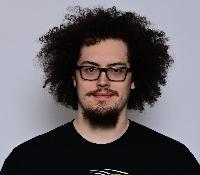
Coach Jared joined the TTSC coaching staff in 2019, working first with the Summer Splash program, and then with the youngest swim groups. Jared started swimming with TTSC in 2010 and continued to swim for the club, winning medals at high school states in the 200 and 500 freestyle and traveling with the club sectional team, until his graduation in 2018. He went on to swim division two for a year at Fresno Pacific University, after which he was sidelined by injuries. Away from coaching, Jared enjoys painting, playing games, and spending time with his three Dalmatians.

Coach Dan is new to Oregon and TTSC but not to aquatics. He has coached collectively for 15 years, coaching many areas of aquatics, including age-group swimmers, water polo, masters, and even water aerobics. Coach Dan has a degree in Physical Education from Riverside City College and a Bachelor's in Health Science from Arizona State University. Swimming has been a central point in his life from his time as an age-group swimmer to an All-American swimmer, and as a Rescue Swimmer for the United State Navy. Coach Dan intends to assist individuals in developing their strengths and support individuals in overcoming fears.
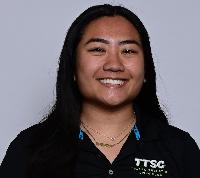
Coach Emma joins TTSC as a recent graduate of the University of La Verne wiht a degree in Business. She was a member of TTSC from the ages of 8-15 and swam for Tigard High School where she was a 2-year Team Captain. Emma continued her career through college at ULV, was a team captain her senior year, and managed to graduate in three years! While in college, she modeled and worked for Jolyn Clothing, and Arena, which led her to her current role out of coaching: a full-time content marketing specialist for Arena, where she gets to make content with athletes of all levels, including Olympians, and travel around the globe for swim meets!
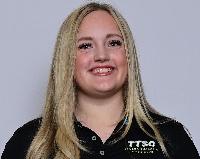
Coach Elizabeth joins TTSC as a recent college graduate from Washington State University with majors in Advertising and Sports Communications. Elizabeth was a former member of TTSC, starting early in elementary and staying a member until the end of middle school. While in high school at Tigard High, she was a four year varsity letterman while also being captain of the team during her senior year. She also worked for the Tigard Tualatin Aquatic District in high school as a lifeguard and swim lesson instructor. During college Elizabeth participated in leadership roles within her sorority as well as working at Nike on and off breaks. Swimming has always been a huge part of her life and she is extremely excited to start coaching!
